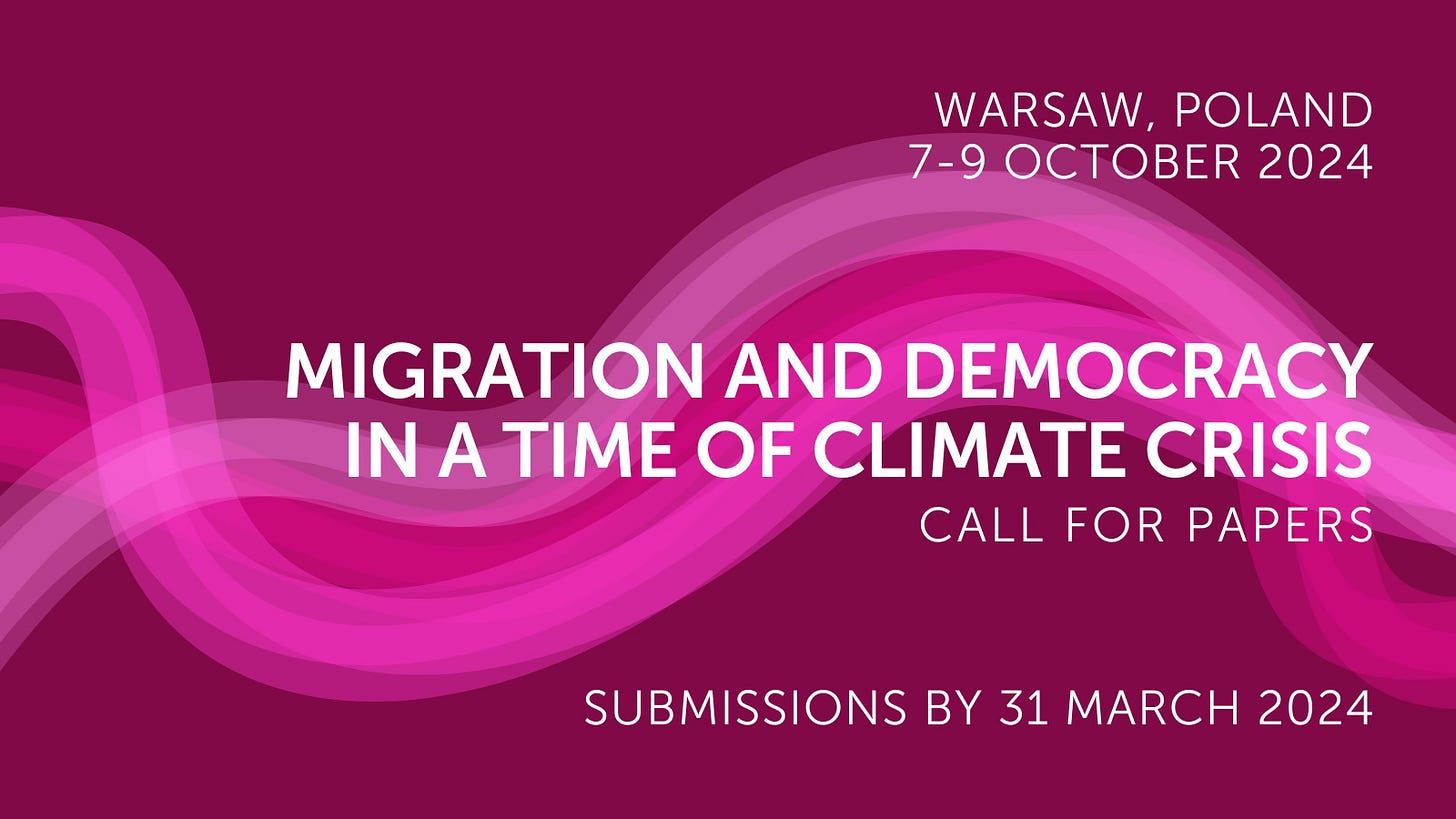ISRF Conference III - Call for Papers: Migration and Democracy in a Time of Climate Crisis
Inviting expressions of interest in presenting a paper at our upcoming conference, scheduled for 7-9 October 2024 in Warsaw, Poland.
Our three topics for this year’s ISRF Conference have become trapped in a vicious cycle. Climate crisis increases migration, which has triggered anti-democratic backlash, which reduces international cooperation on climate, which allows the climate crisis to intensify. Each of these relationships is real, and each is rooted in myth. The ISRF invites papers on any of these three topics, or any combination of them. How can we interrupt this cycle and even reverse it? How can we treat underlying causes rather than addressing symptoms?
Migration has become a flashpoint in politics around the world. It divides centre-left parties and pushes them to the right, while radicalising traditional conservative parties into imitations of far-right and/or neo-fascist parties. People who rate migration as a top problem in their society are more likely than members of green or social democratic parties to perceive a danger of imminent societal dissolution. They are also more likely to favour non-democratic and/or military responses and the suspension of human rights protocols and international law.
Meanwhile, global democratisation has stalled or even reversed. The V-Dem Institute reports that 72% of the world’s population live in autocracies, 2% live in democratising countries (the fewest since 1973), and “advances in global levels of democracy made over the last 35 years have been wiped out.” Poland recently reversed its own backsliding, and yet the pressures on its democracy remain intense, including pressures from standard responses to migration.
Climate change continues to run rampant, and both public- and private-sector responses remain inadequate. On the same day that the European Union’s Copernicus Climate Change Service reported that the global average temperature from February 2023 to January 2024 was 1.52ºC above the average 1850-1900, the UK’s Labour Party cut their green investment promise in half.
The relationships among our three terms are complex. For example, on the links between climate change and migration, the UN reports that “climate-related disasters trigger more than half of new reported displacements in 2022, but nearly 60 per cent of refugees and internally displaced people now live in countries that are among the most vulnerable to climate change.” A relatively low percentage of persons displaced by climate-related events migrate from the global north to the global south. We welcome papers shedding new light on this or any other of the relationships among our various terms.
A title and brief abstract are invited from researchers from any discipline: arts, humanities, sciences, and social sciences, including legal theory, political theory, ethnic and race studies, and others. We are also interested in papers that continue any of the themes of the past two years: The Digital Condition and Humanities Knowledge (Athens, 2022), and Climate Crisis, Global Capitalism, and Higher Education (Bologna, 2023). ISRF will cover accommodation and catering costs for all invited participants – a limited bursary fund may be available to cover travel costs, but delegates are encouraged to source funding from their home institutions.


